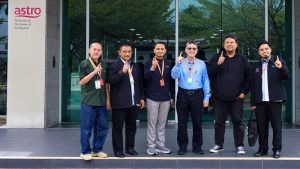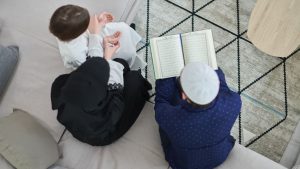On 13th May 1969, the peaceful streets of Malaysia were tainted with the stench of massacre and blood. As if possessed by demons, citizens were brutally assaulted simply for the fact that they were from different races.
More than three decades later, Kampung Medan witnessed a repeat of the previous racial riots. The surrounding neighborhoods were wreaked with havoc and mayhem, and the riot resulted in six casualties.
Now, twenty years later, disharmony still exists in our developing country. There is still a huge gap between races either socially or economically.
Recently, debates about the quota system in tertiary education were brought up on social media. This conversation shines light on how racism and xenophobia are still ingrained in the minds of some citizens, where some netizens were insulting opponents of the quota system with words such as ‘pendatang’.
Even though the intention of the quota system is to reduce the economic gap between ethnic groups, it fails to prevent racial prejudices from spreading. There is still a sense of otherness in non-Malays and Malay supremacy is very much prevalent. To ensure unity and respect between Malaysians, citizens must unlearn the existing racial prejudices and biases.
In this context, we can learn from the implication of the brutal death of George Floyd in the USA, where the Black Lives Matter movement started calling for citizens to unlearn their prejudices and biases towards the black community.
One thing to remember here is that unlearning is a process that requires compassion and patience. There are three concrete steps in unraveling racial prejudices and biases:
1. Acknowledge the truth
Firstly, we have to admit that negative stereotypes and perceptions exist between ethnic groups. This step is crucial in the process of unlearning as we have to identify the problems in our society in order to take proper action against it.
Therefore, citizens must first reflect on their understanding of other communities. Citizens ought to also research the history of our nation and the culture of other races through books and other mediums to have a bigger picture of the situation.
2. Listen to the experiences of different ethnic groups
Now that we have managed to come to terms with the truth of the whole situation, the next step is to open our ears and listen to their perspectives. While our opinions do matter, we have to take into account the different experiences lived by other races.
For example, we must hear what non-Malays and non-Bumiputeras have to say about the quota system so that we can understand their point of view on this issue. This step is important so that we can take a holistic approach towards solving the whole situation.
3. Take action
This is the last step in unlearning racial prejudices and biases. After identifying the problem and listening to the experiences of people who matter, the next step is the application of what we have learned.
To illustrate this point, citizens can donate to marginalized ethnic groups, sign petitions to advocate for equality through the implementation of better laws and spread awareness about the mistreatments and discrimination of other races. This step is pivotal in narrowing the gaps and borders between communities whether socially or economically.
In essence, unlearning harmful racial stereotypes and biases is a critical move in bringing our citizens together. It must also be noted that the progression of our nation lies in our unity.
If we do not want to see a repeat of the racial riots in our history, we must cultivate patience and compassion in listening to and understanding each other.
Huzaifah Fakhrul Anuar







